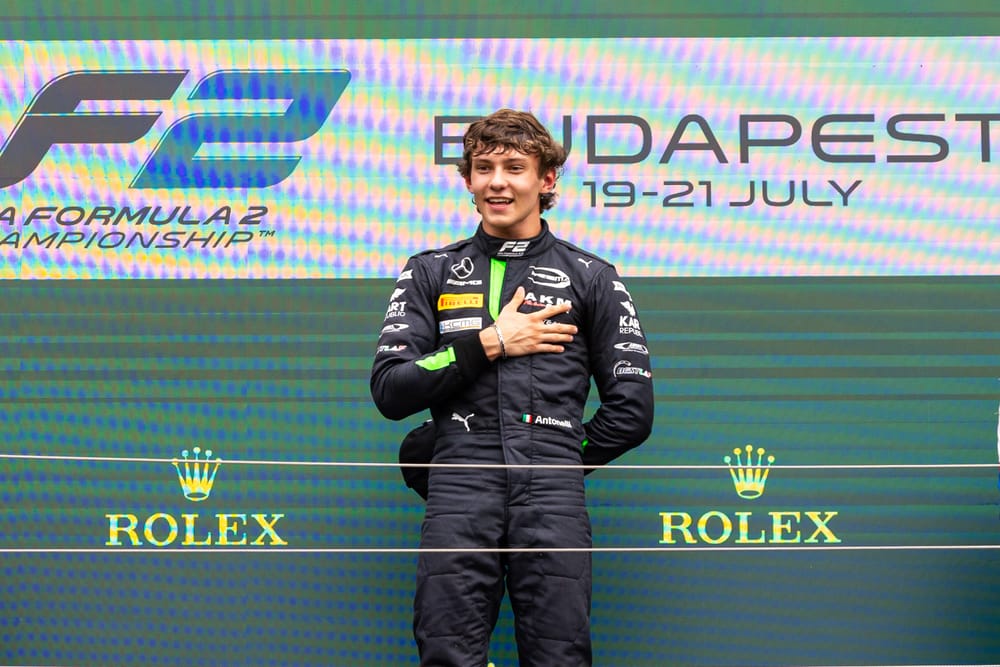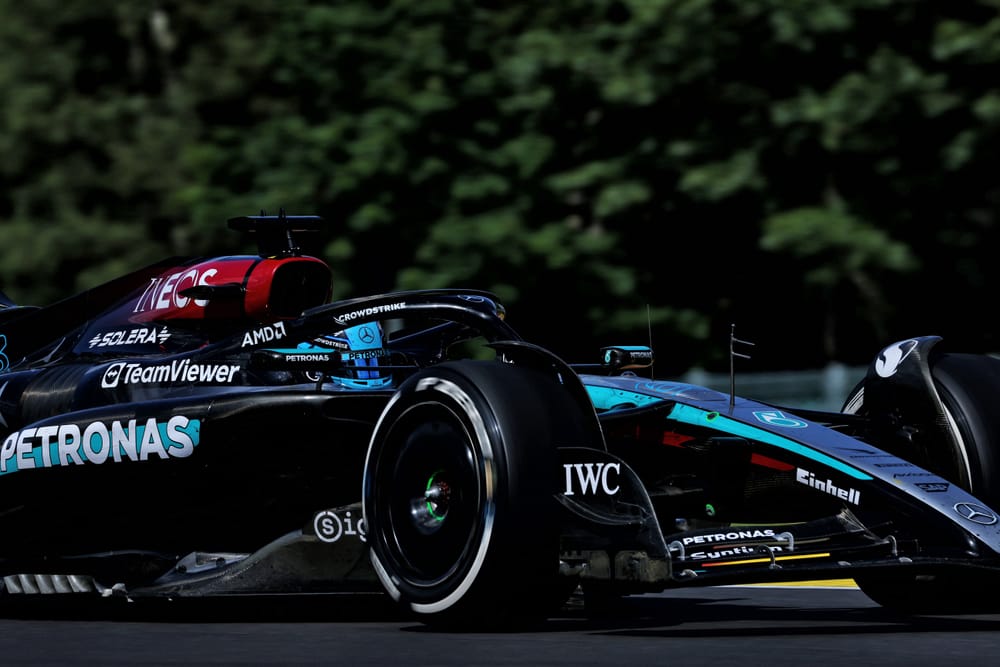

Forecasting the Formula 1 driver market more than a handful months in advance is a fool's errand, but team bosses and driver managers would be negligent if they didn't at least try to map out a host of scenarios for a year or two into the future - both in making decisions in the now but also in simply understanding where they stand even if there is contractual certainty.
Because of this, let's paint a picture that's perhaps not the likeliest yet certainly plausible enough:
1. Kimi Antonelli gets the Mercedes seat for 2025.
2. Antonelli hits the ground running in the W16 or whatever it's called, qualifying ahead of his team-mate at something like a 30% rate and grabbing an eye-catching result or two.
3. Max Verstappen puts himself on the market through some mechanism or other, eager to make a change because either Red Bull hasn't started 2025 well or things aren't totally convincing behind the scenes for 2026.
So... uh-oh, right? Uh-oh for one person in particular - George Russell, the 2024 Belgian Grand Prix winner for just over a couple of hours but also a driver long assumed to be the heir apparent to the Mercedes empire.
The 26-year-old Russell has been an unqualified success at Mercedes, and is clearly well-liked and highly rated at the team overall and by Toto Wolff specifically. But his contract - although it would be unsurprising if some extension clauses exist - expires at the end of 2025.
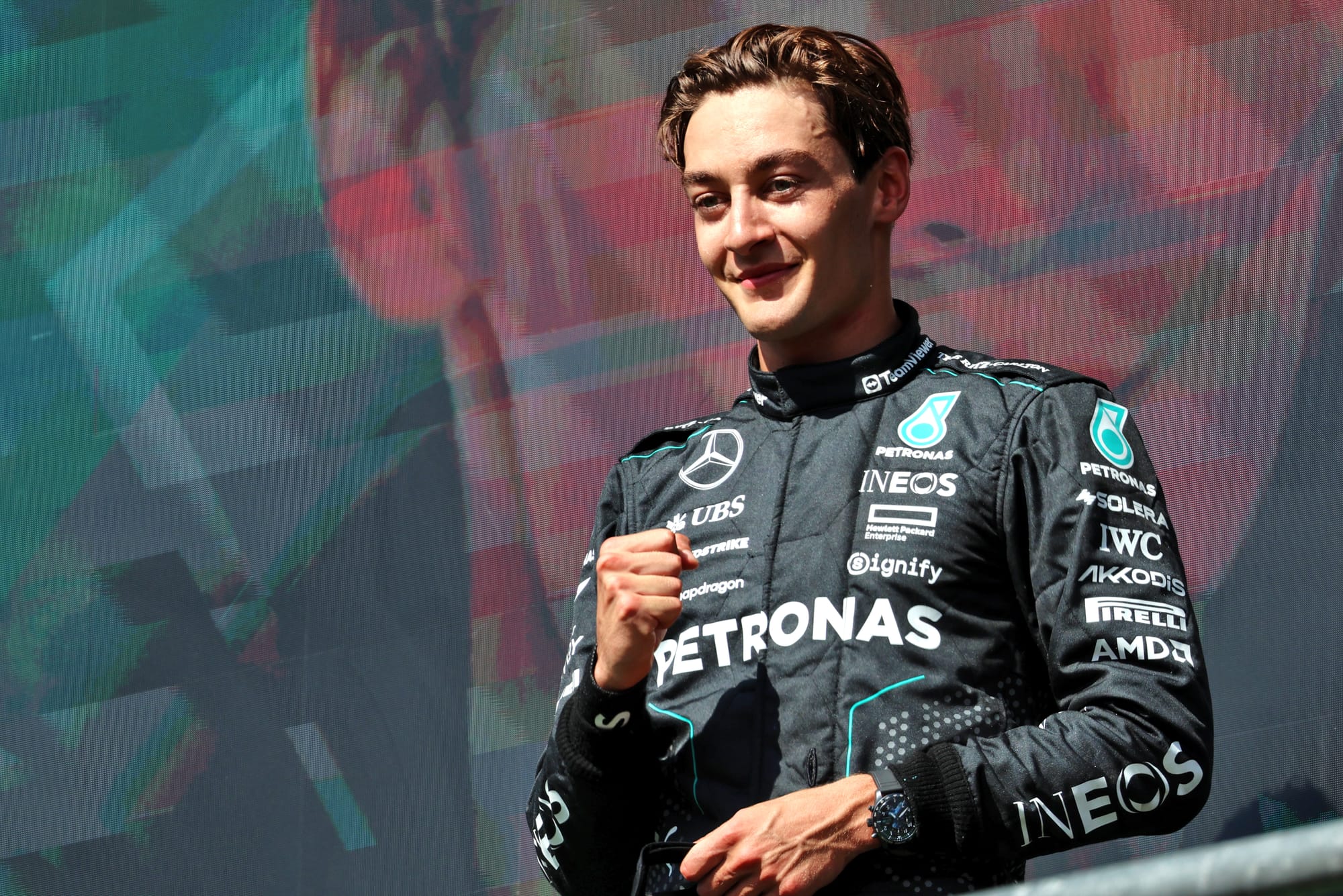
In the modern world of F1 that actually makes him something of an outlier among 'franchise drivers', with the McLaren duo, future Ferrari team-mates Charles Leclerc and Lewis Hamilton, and Verstappen himself (without accounting for the off-ramps) all contracted into the new rules era.
Which is why it's so important - in a way, maybe more important than the car ending up 1.5kg underweight - that Mercedes watched him call his shot and dig in en route to the chequered flag in Belgium.
Mercedes' long-term targets
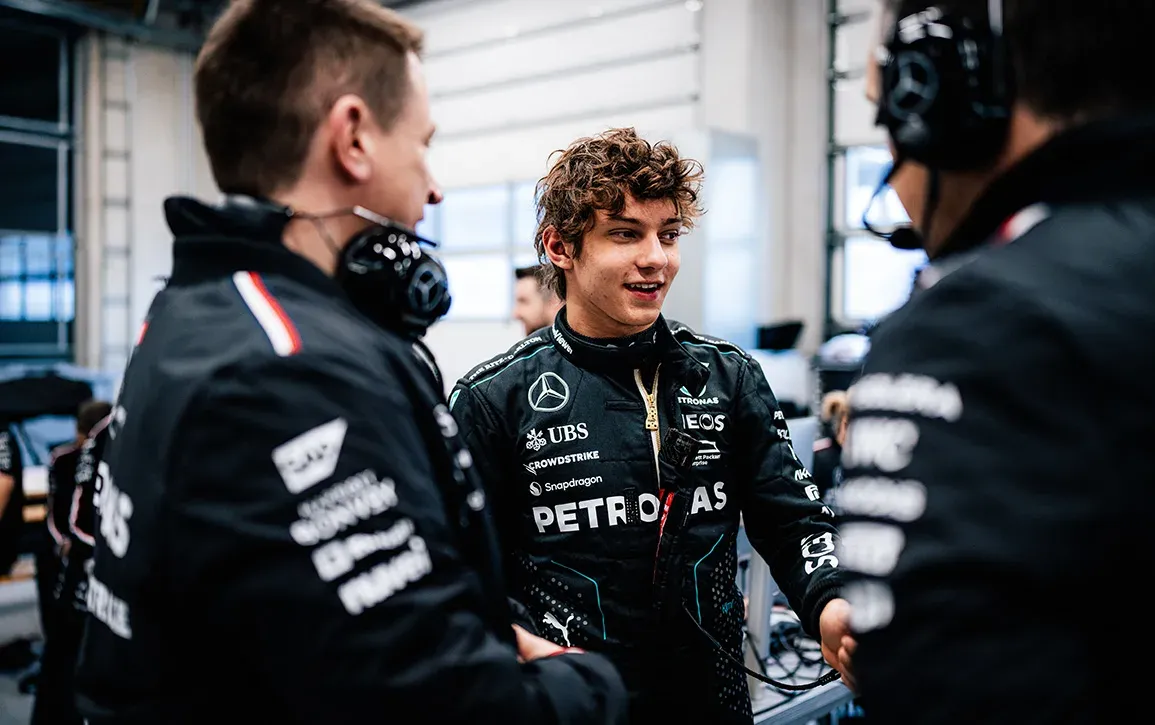
Wolff has made no secret of the fact that room would be made for Verstappen if Verstappen wanted to come in. Whether this is also true for every other F1 team or not, Mercedes is the one that has been the most open about it.
If Verstappen is on the market, there will be a clear interest in making it happen from the Silver Arrows' side - and it is already known that there are people in Verstappen's entourage that favour a Mercedes switch.
But Mercedes has also made it clear that Antonelli is an indelible part of the long-term future - a homegrown option to make amends for having missed out on Verstappen all those years back.
Is it insulting to Russell's F1 pedigree to suggest Antonelli is already a threat, a driver seventh in his first year in the Formula 2 championship that Russell himself won at the first attempt in a likely stronger grid? Maybe a bit, yes.
But Mercedes recognising Antonelli is raw, as clearly evidenced by this F2 season regardless of his Prema team's struggles, isn't the same as having any real doubts. There's clearly total conviction in his upside. It also helps that there are persistent rumblings he has wowed Mercedes in his old-car testing programme.
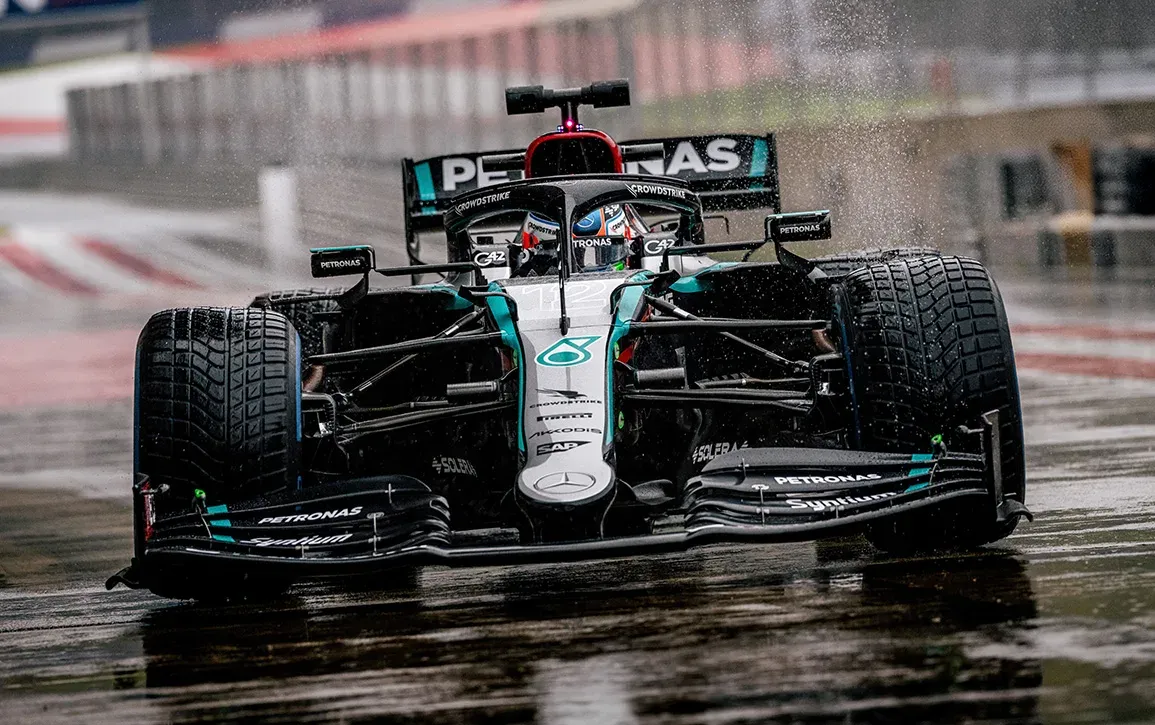
Taking this to its logical conclusion creates a scenario where Mercedes' line-up is fully reset and Russell finds himself on the outside. Which, admittedly, doesn't feel right, because - apart from the general sense of Russell being synonymous with Mercedes at this point - Mercedes has been the image of conservatism when it comes to its line-up since the works team's return to F1.
Bringing in Lewis Hamilton was a coup but one Mercedes was pushed towards by Michael Schumacher dawdling on his future. The only reason Hamilton's resulting pairing with Nico Rosberg was broken up, even though it was borderline dysfunctional, was because Rosberg walked away from the sport.
The fact Valtteri Bottas then got five seasons is largely a byproduct of Russell getting an ironclad three-year deal at Williams, but Mercedes agreeing to that deal to begin with shows how content it had been to let things take their course without forcing the issue when it comes to its line-up.
But for the promise of Antonelli, it opened itself up to losing Hamilton. And being conservative doesn't mean it can't be ruthless - after all, to be first in line at Mercedes Russell had to step over Esteban Ocon, who himself had stepped over Pascal Wehrlein.
A bird in the hand...
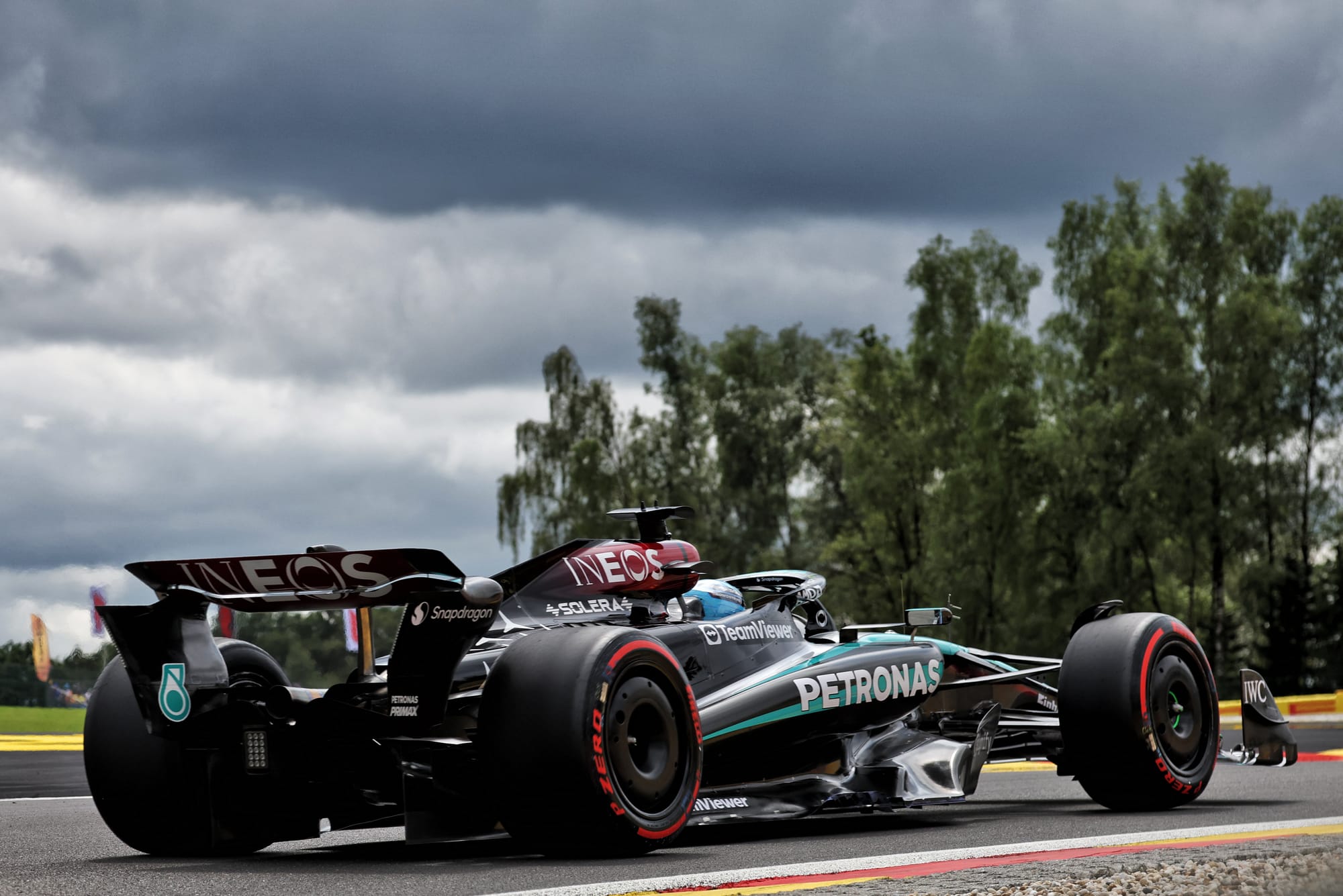
All of that, though, only matters if Russell cannot make an unimpeachable case that he is still the Mercedes' future.
If he can drive in a way that tells Mercedes 'don't you dare think about anyone else because I am already here and I will take you back to F1's promised land', why would it bother taking on the risk of integrating an outside option?
The good thing there is that Russell is already an exceptional F1 driver, one of the very best. He has lorded over Hamilton over one lap this season and is a proven winner.
But there remain doubts over whether he is robust enough. We tackled the same question earlier this season, after Russell let a Canadian GP win slip through his fingers.
He is still not as much of an all-rounder as Hamilton - which, OK, yes, that's a comparison versus the greatest driver of all time, but it's also a comparison versus the late-career version of that driver that Mercedes, again, has deliberately left itself vulnerable to losing because of how excited it is by Antonelli.
If you take a race stint on the same tyres and fuel and no traffic, and time them both, you would intuitively back Hamilton. If you take mixed conditions - Russell is no slouch there, but you would back Hamilton. If you take race execution - say, putting the driver on fresher tyres with five older-tyred cars to clear in front of him - you would back Hamilton. Hamilton who Mercedes is semi-intentionally moving on from.
This is a problem for Russell if there is any perception that his progression has, six seasons into his F1 career, stagnated. This is where Belgium 2024 comes in.
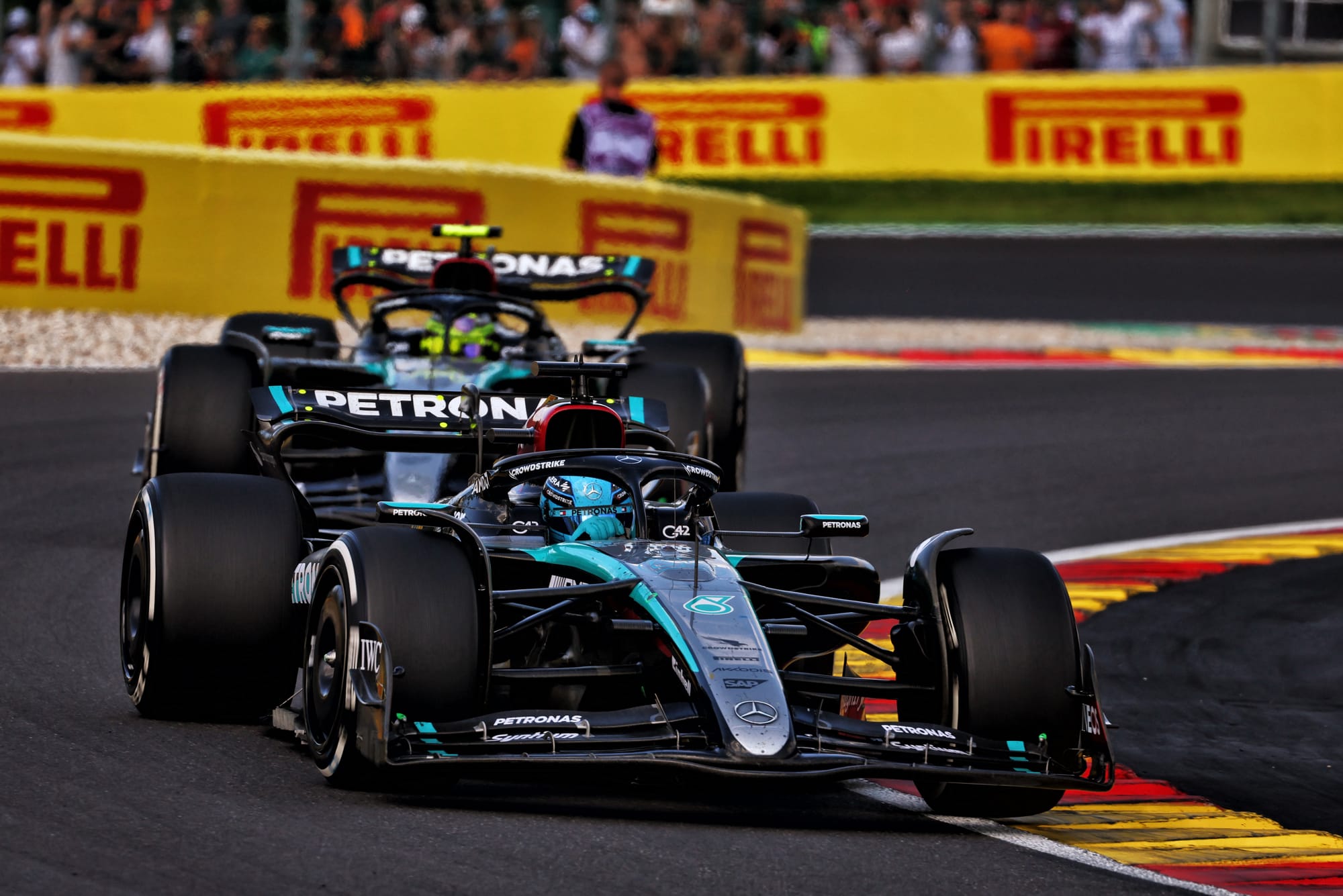
Russell saw the optimal strategy, asked for it and executed it. He looked a sitting duck with Hamilton bearing down on him on fresher tyres, but knew exactly where to push to ensure Hamilton never really even got a sniff of an overtake.
He put himself under pressure, the very same kind of pressure that has caused a misstep or two in his other win chases, and soaked it up.
There is already an argument doing the rounds that Russell even daring to attempt that strategy is at fault for his disqualification, which is of course sheer nonsense delirium. There are more valid caveats, though.
The first one is that the missing weight was a performance contributor - half a tenth or a tenth per lap, which is actually a decent amount over 44 laps but arguably won't have changed the complexion of this specific drive because it was about track position rather than minimum race time.
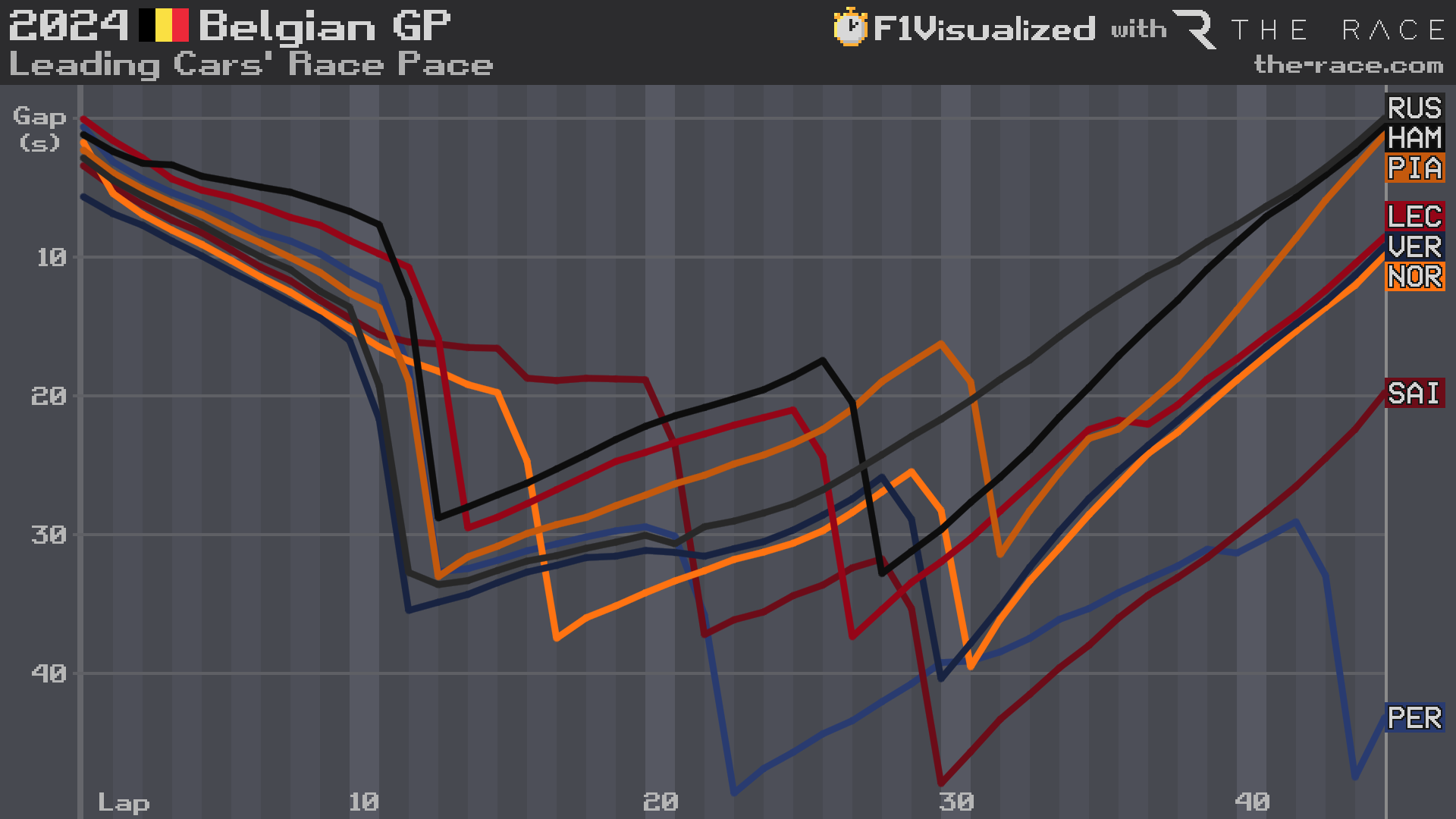
The second one is that this was not necessarily a tyre-limited race, which is what made the one-stop possible in the first place, so it didn't test Russell's stint management to the fullest. Although to counter that, it is not like there was no deg and it is not like there was no overtaking. It was hardly Monaco.
Ultimately, having lost a winnable race earlier in the season, here Russell won a theoretically unwinnable one. Then he suddenly didn't - but Mercedes clearly does not hold it against him. Wolff said Mercedes "can only apologise" to Russell.
Even in a brutal world like F1, it can probably be pretty useful when those who ultimately have your future in their hands feel, on an emotional level, that you've been short-changed. It is a long-held belief of mine, though utterly unverifiable, that Charles Leclerc's ascent to Ferrari royalty status was actually made slightly quicker by his 2019 Bahrain GP heartbreak and magnanimous response to it than if he'd won that race.
And even those at Mercedes not too prone to being ruled by emotion will remember that they watched Russell turn nothing into victory. Which is the very thing you would hire someone like Verstappen for.
The win's gone. The memory will remain. It will, at minimum, help Russell if he ever steps foot into F1 free agency - if Mercedes lets him get that far.
